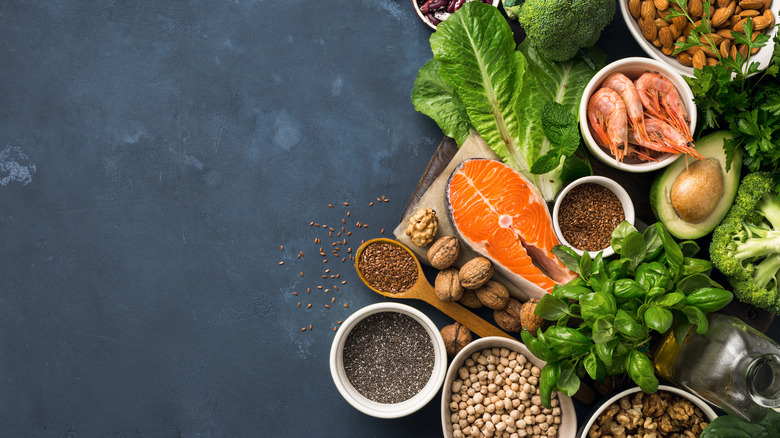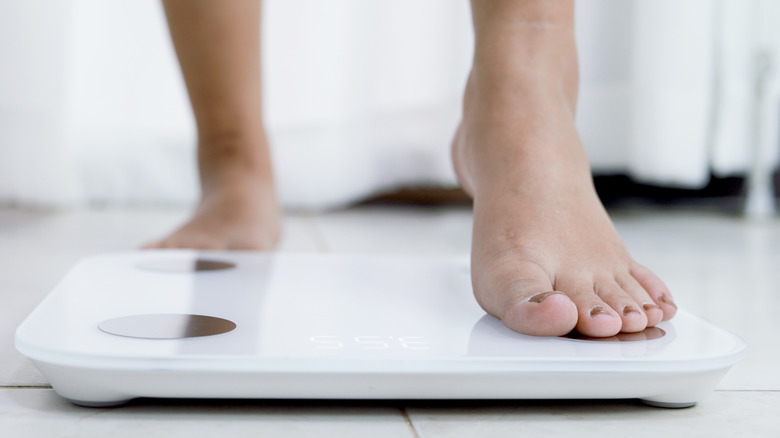The Real Reason You Should Avoid A No-Fat Diet
It would help if humans were born with a manual filled with the tips necessary to lead healthy lives. Wishful thinking aside, it seems like talk about health, in particular diet, is often rife with contradictions. For years the recommendation was to eat a low-fat diet in order to avoid gaining weight. Now, with extremes, such as the ketogenic diet, fat is no longer considered the enemy. In fact, fat is increasingly deemed a significant part of an effective weight loss diet.
Even though the notion is counterintuitive, incorporating more fat into your diet can help you lose body fat, according to Livestrong. Before you start loading up your plate with fried food, though, it's important to note that not all fat is created equal. The American Heart Association recommends focusing your intake on mono and polyunsaturated fats, limiting saturated fats, and avoiding trans fats which are highly processed. Oxygen notes that mono and polyunsaturated fats can be found in olive oil, nuts, seeds, avocados, and fish.
As long as you are sticking to whole foods, chances are you will be ingesting nutrient dense options, explains Livestrong. Very Well Fit points out that, not only is fat one of the three macronutrients, it is also necessary for survival. Your body uses it as energy, to produce and absorb vitamins and hormones, for muscle and cell growth, insulation and organ protection, nerve function, and as a key element in satiety (via AHA). We said it was essential!
How can you shift your habits?
If you are not eating much fat in your diet, you are probably replacing it with carbs which require larger quantities to fill you up. Nutritionist Stephanie Kay explains that the body's preferred source of energy is carbohydrates. Therefore, as long as you are consuming more carbohydrates, your body will use them as fuel and your body fat will remain untouched. Kay points out that insulin is the hormone responsible for burning or storing fat, and consuming carbohydrates leads to elevated levels.
Kay warns that the longer your body is accustomed to a carbohydrate focused diet, the harder it becomes to switch to using fat as energy. Consequently, it's essential to incorporate healthy fats into a diet in order to assist your body in burning fat. While ketogenic diets are an extreme which can work for some people, you do not have to significantly change your lifestyle in order to incorporate more fat into your diet.
Atkins points out that fat provides plenty of flavor, which can help prevent you from feeling like you are missing out if you are trying to lose weight. Low-fat, bland diets won't work if they don't satiate your hunger and desire for flavorful food. Similarly, Very Well Fit notes that fat-free alternatives often resort to adding sugar to improve the taste, which means more insulin and, ultimately, weight gain. Prioritize whole foods and healthy fats in moderation, and your body will be more equipped to find balance.

